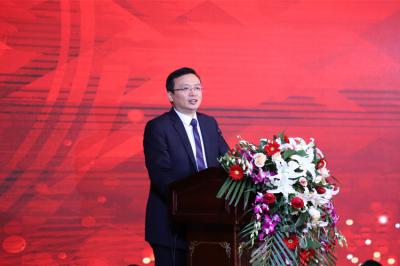China is a big country in meat processing and importing and exporting, with abundant animal and poultry bone resources. Besides being rich in protein and fat, it also contains many functional components, such as amino acids, collagen and so on. However, due to the difficulty of processing, high investment and the influence of technological level, more animal bones are used as processing feed or they are discarded directly, which reduces the utilization rate of animal bones. With the unprecedented rise of global environmental awareness and the promotion of environmental protection legislation, on the one hand, it is necessary to produce clean products that meet the requirements of environmental protection laws and regulations; on the other hand, it is necessary to make better use of livestock and poultry bones and fully comply with the concept of clean environmental protection production. The combination of membrane treatment technology and other treatment technologies is an important means to achieve this goal.
Animal skeleton is mainly composed of protein and calcium. It contains bone marrow, rich in many nutrients needed by human body, and contains low fat. It provides more nutrients without producing a lot of calories. It is an ideal low-fat and high-nutrient food.
Importance of Membrane Filtration Technology
The comprehensive development and utilization of bone resources began in the 1970s. At first, only mechanical crushing was used to make bone soup, bone meal and so on. Later Japan and other countries have obtained a series of products by using ultrafine grinding technology to separate the nutrients in the skeleton in many ways, which has promoted the utilization of bone resources. In China, the utilization of bone resources is relatively late. Several osteoprotein enterprises appeared in the 1990s, but they also use Japanese production lines for bone processing. At present, the bone processing technology of domestic bone products processing plants is relatively single. It mainly extracts the skeleton under high temperature and pressure. In order to reduce the bitterness and fishy smell of bone soup, it also adds condiments to make multi-flavor bone soup. It has not reached the high purity we pursue and has the unique fragrance of bone itself.
The product processing with animal bone as raw material mainly uses separation technology to achieve oil and water separation, solid-liquid separation and concentration and purification of flavor substances. In the past, solid-liquid separation mostly used screen filtering method, but the bone soup contains more impurities and smaller volume. Screen mesh with a large number of meshes is easy to cause subsequent production containing large particle impurities affecting flavor and quality. Screen mesh with a small number of meshes is easily blocked, so the removal and cleaning is too frequent. At present, some enterprises use disk or tubular centrifuge for solid-liquid separation, but the centrifuge also has the above problems, the product is relatively turbid, which increases the burden of subsequent production. Therefore, the introduction of new separation technology is very important for the development of bone soup industry.
Production of pure high-aroma alcohols
Microfiltration membrane filtration is a method of separating mixtures by using thin films. The homogeneous or heterogeneous mixture system composed of different components can use the selective permeability of thin films to make some components pass through the membrane while others are intercepted, thus realizing the separation of different components.
The terminal separation method mainly uses the material fluid pressure difference as the driving force to screen and separate. Conventional filtration can only filter particles larger than 0.5um. It can intercept such tiny particles by bridging the particles in the filter cake. Due to the accumulation of pollutants on the membrane pore after long-term use of direct filtration, the flux decreases and it is difficult to meet the general production. Inorganic ceramic microfiltration membranes adopt cross-flow filtration. The material flow flows through the membrane surface by cutting the surface of the membrane and penetrates the membrane surface through the pressure difference. Because of the scouring effect of fluids, pollutants are difficult to remain. It can maintain high flux and high discharging effect for a long time. Concentration effect of organic membranes has been based on industrial application for many years. There's not much to narrate here.
After many experiments and industrial applications, it has been proved that membrane separation technology has an irreplaceable advantage over traditional Centrifuge + direct evaporation concentration for separation and concentration of aggregate liquid. Firstly, the microfiltration membrane can achieve absolute solid-liquid separation. The clearing liquid of the discharged bone soup is transparent and bright, with an average turbidity of less than 0.5 NTU, and it can run for a long time with high throughput. The system regeneration is simple and convenient, and it can be operated automatically without too many operators. Compared with traditional separation and filtration, it has the advantage of real-time surpassing the incomparable.
The bone soup filtered by microfiltration membrane is further concentrated to reduce the volume of material and liquid, increase the concentration of bone soup, reduce the amount of vapor used for subsequent evaporation, and improve the purity of the product and preserve the fragrance and odor of the product. The experimental results show that the membrane separation technology can remove most of the moisture in bone soup, and the Brix of clear liquid is 0 Brix, which proves that the effective substances of bone soup are retained. The process will not cause the loss of nutrients in bone soup, and avoid excessive volatilization of flavor substances in vacuum concentration process, so as to further improve the quality of products.
As a new separation technology, more and more membrane separation technology has been applied in various industrial fields and accepted by more and more people. Bone soup processing is an important branch of the food industry. The introduction of new technology is of great significance to enterprise development and product optimization and upgrading.
Using membrane technology to separate and concentrate products is the main direction of the development of liquid separation industry nowadays. It represents not only the reduction of personnel use, but also the inevitable trend of the development of safety and environmental protection. It is believed that the bone processing industry will be better in the future, and membrane separation technology will move towards a broader stage.




 +86-25-58849045
+86-25-58849045
 +86-25-58749295
+86-25-58749295
 jiuwu@jiuwu.com
jiuwu@jiuwu.com
 No. 9 Park Road, Pukou District, Nanjing City (Sanqiao Factory)
No. 9 Park Road, Pukou District, Nanjing City (Sanqiao Factory) Call us on:
Call us on:  Email Us:
Email Us:  No. 9 Park Road, Pukou District, Nanjing City (Sanqiao Factory)
No. 9 Park Road, Pukou District, Nanjing City (Sanqiao Factory)

 English
English 한국어
한국어 français
français русский
русский Español
Español

